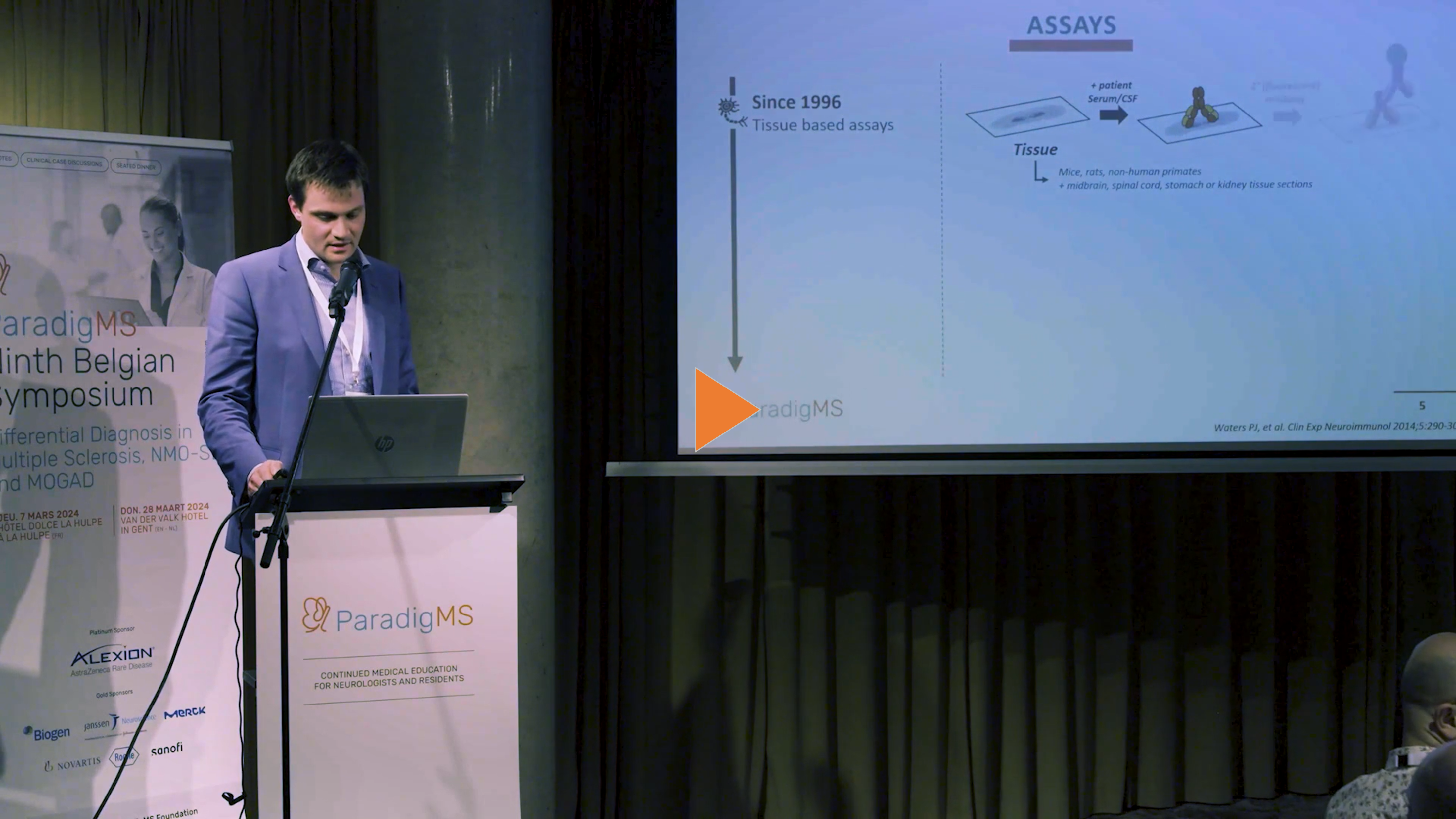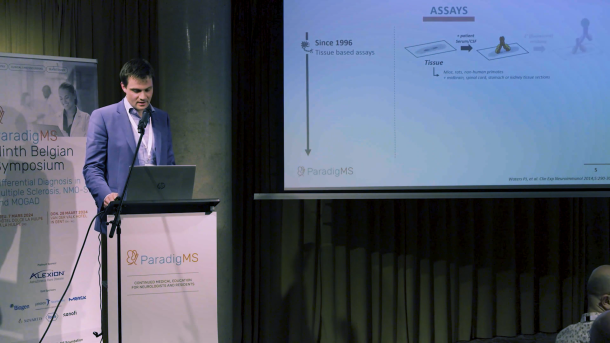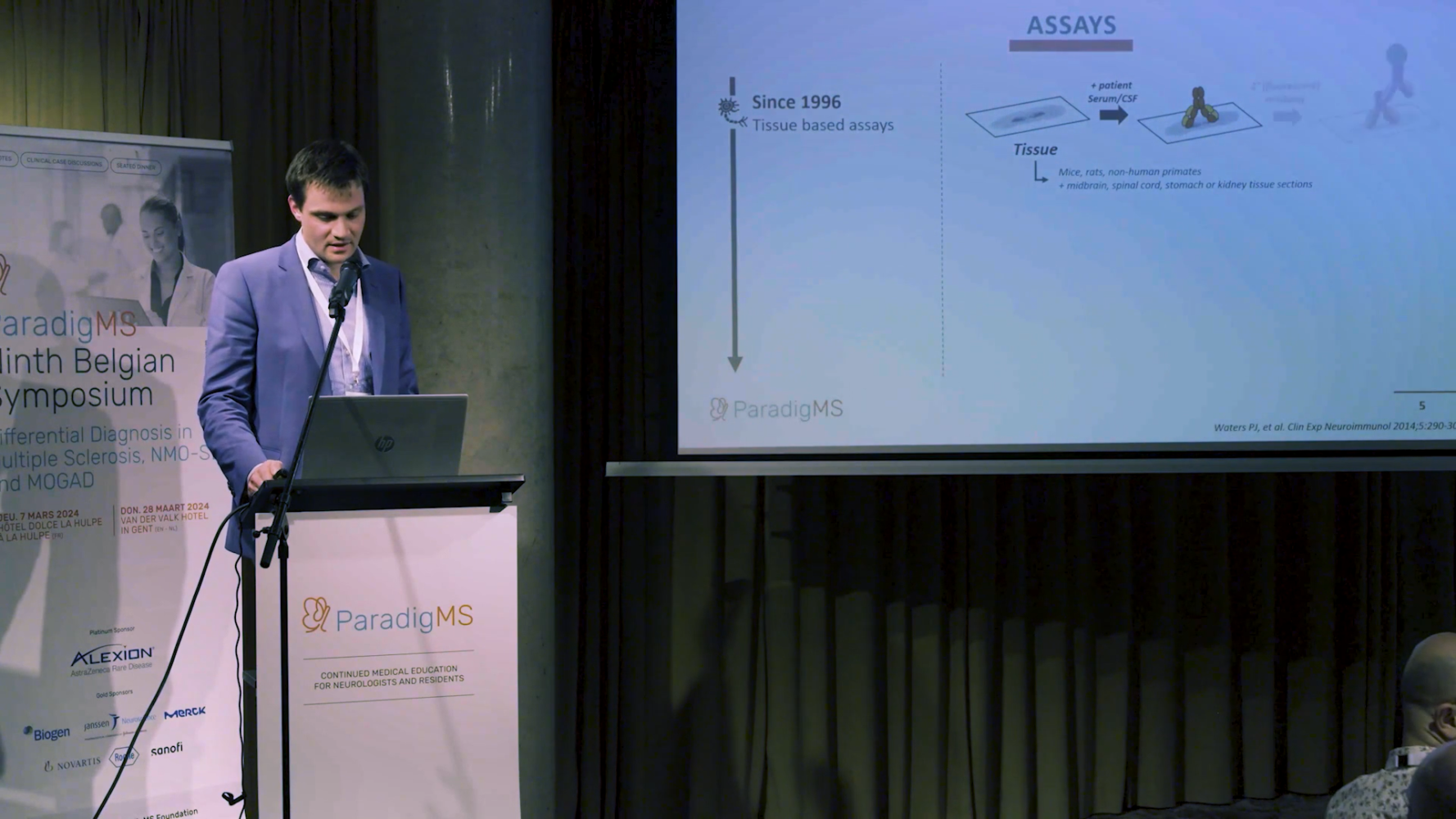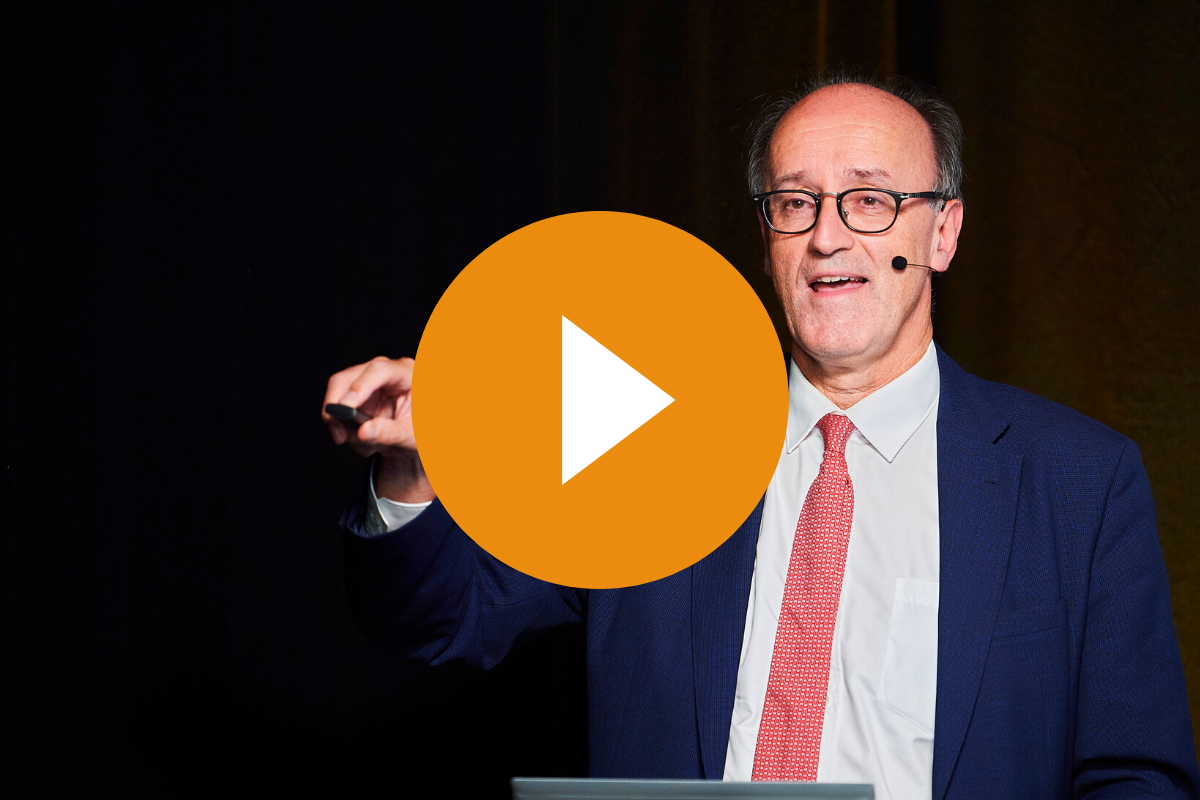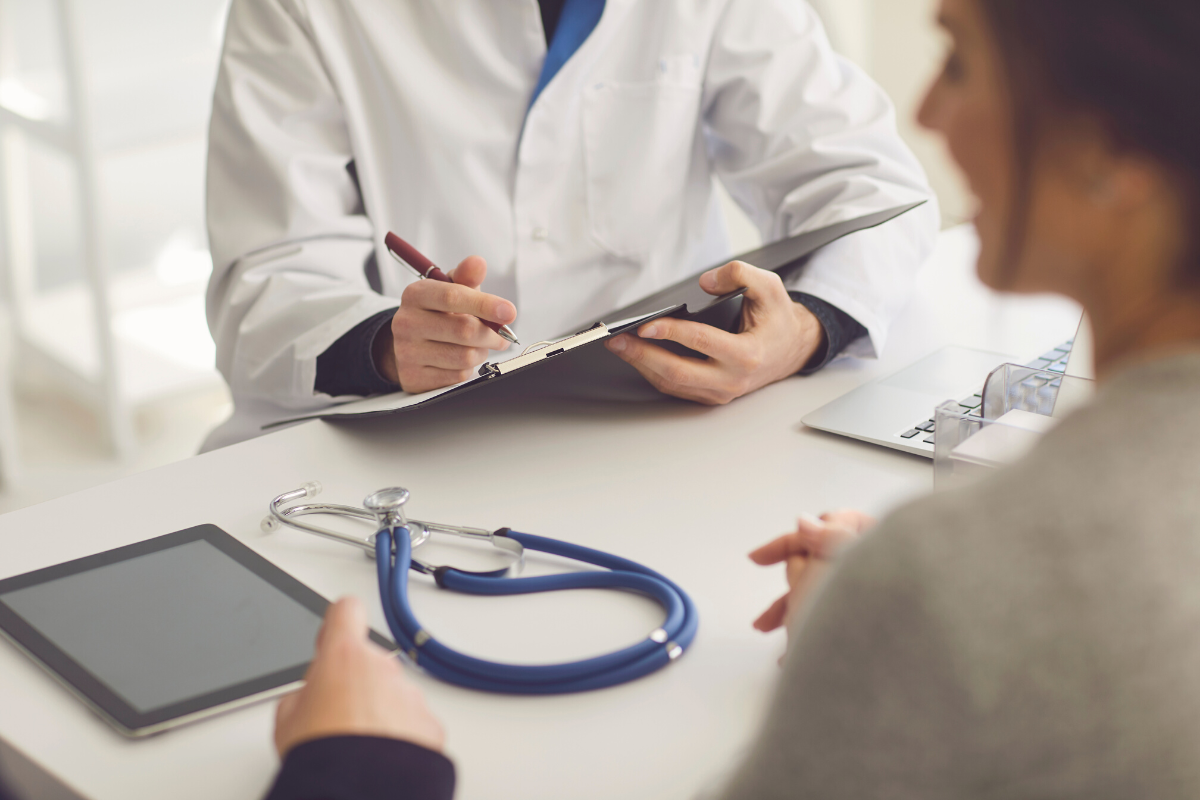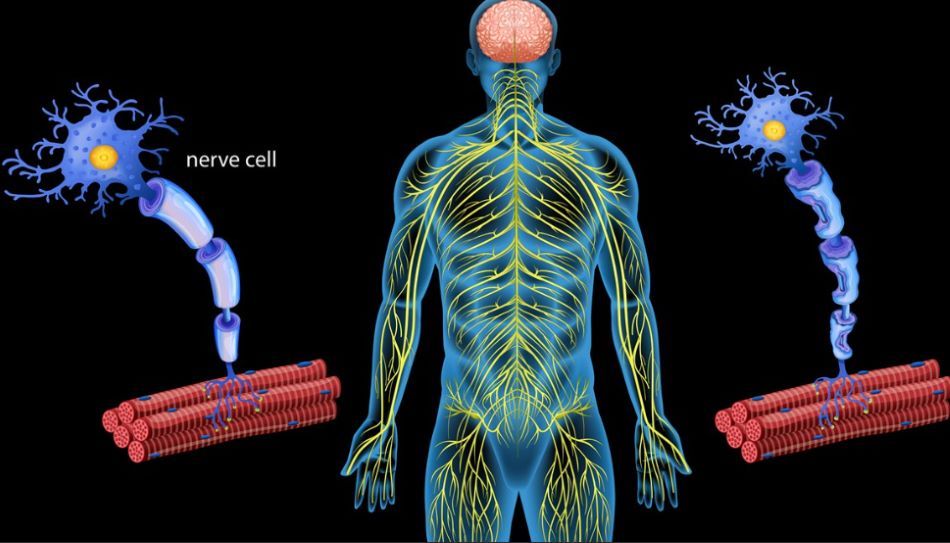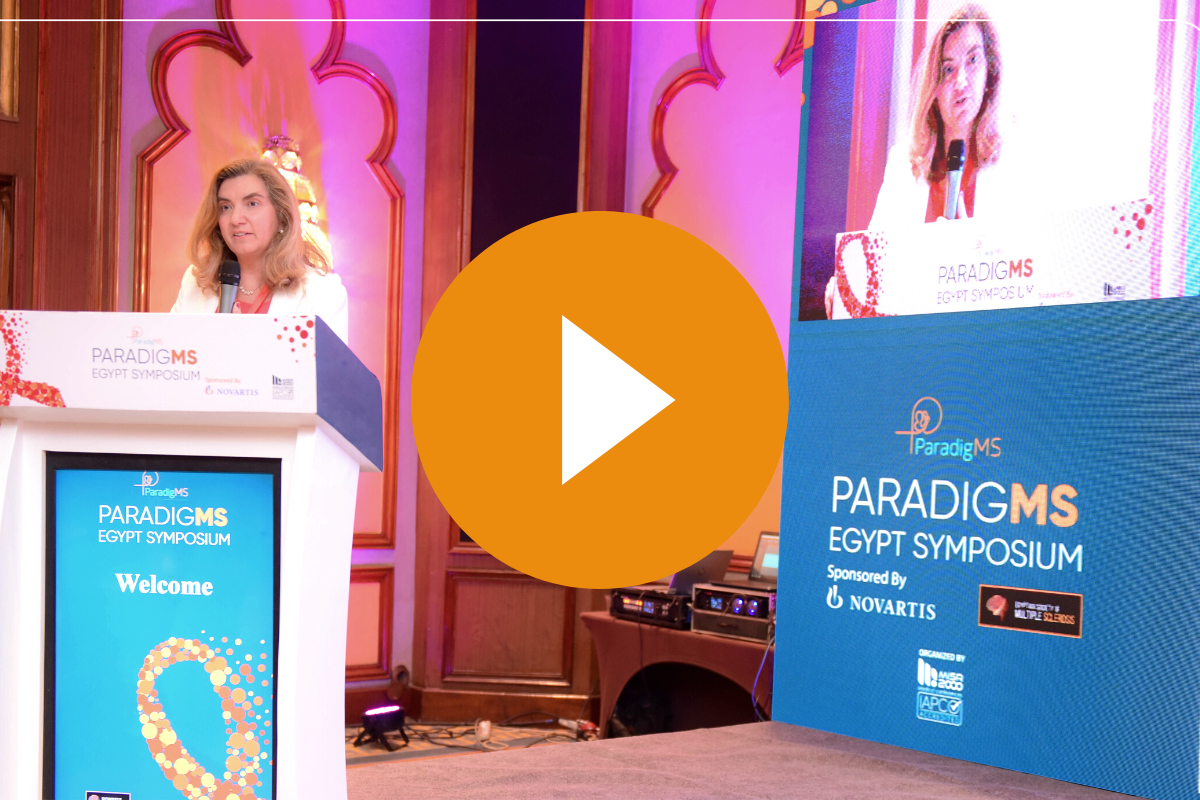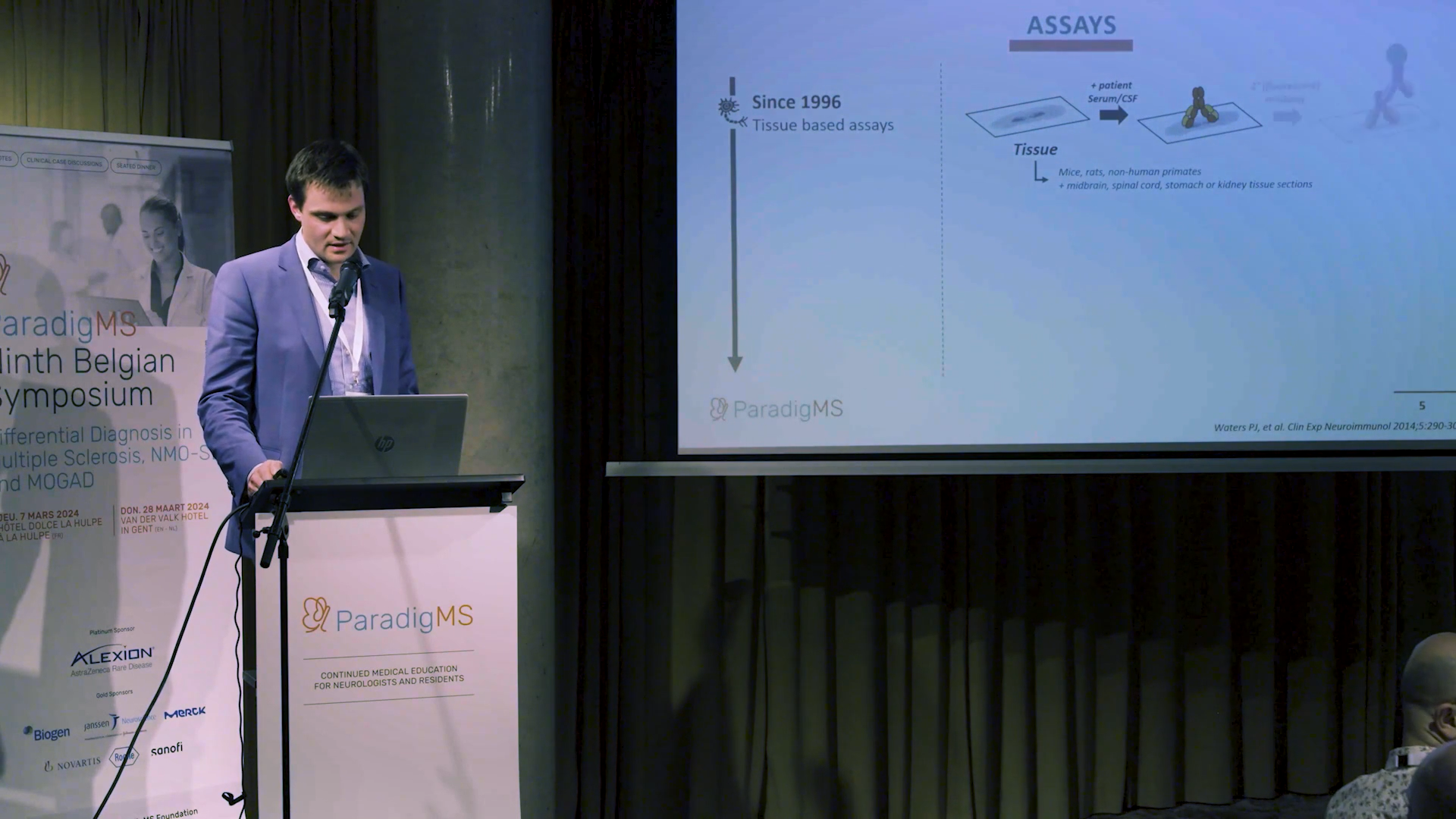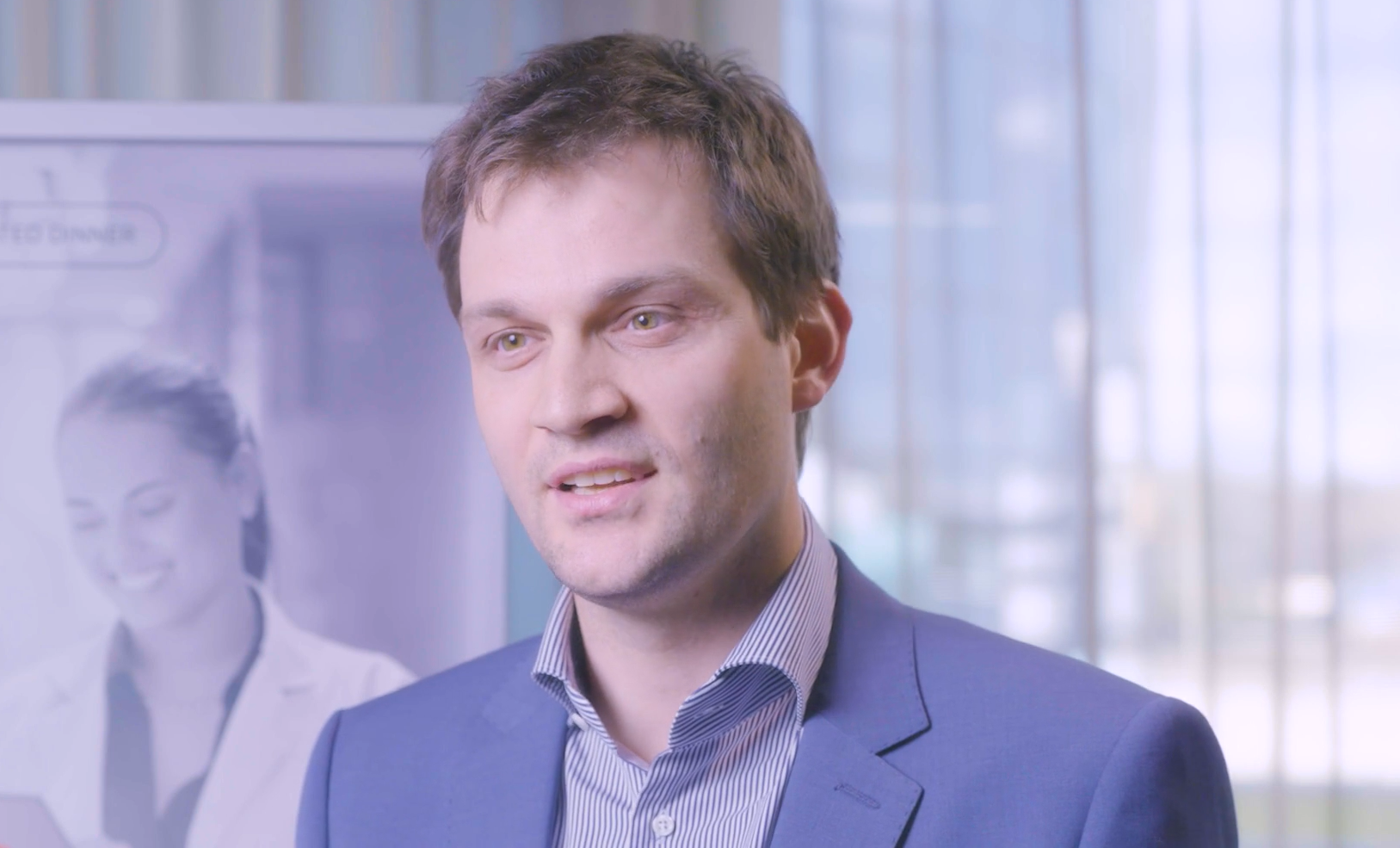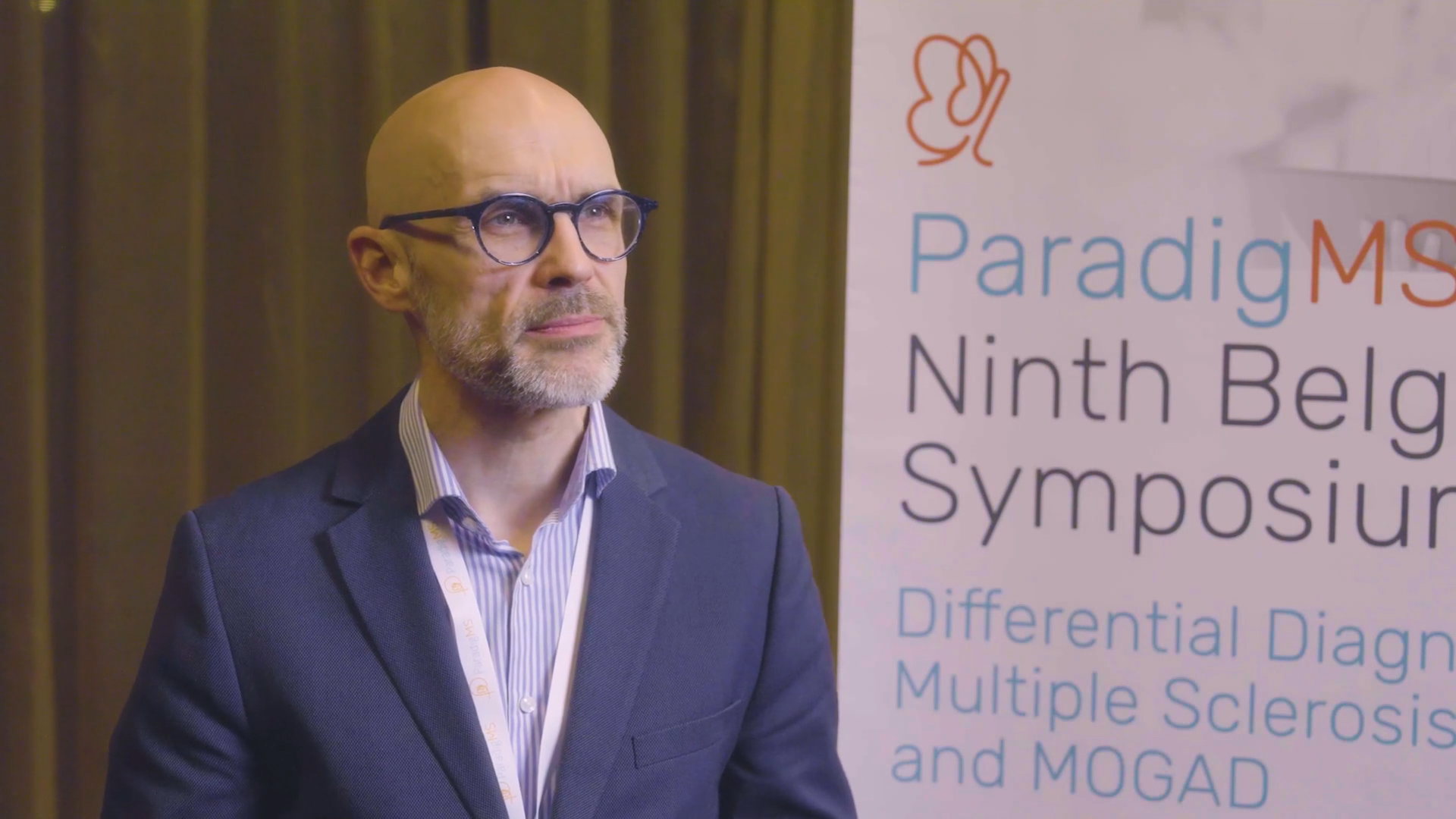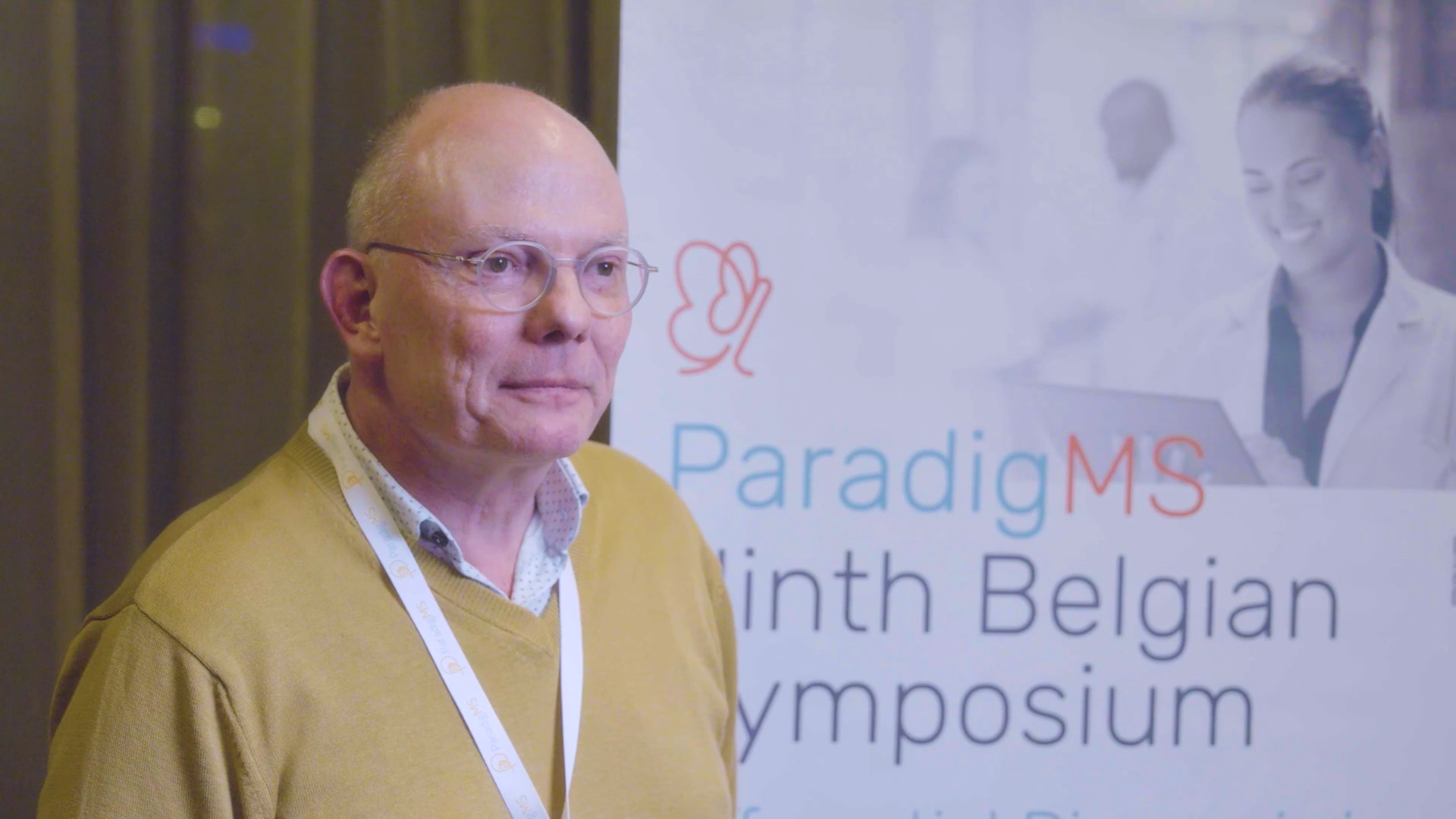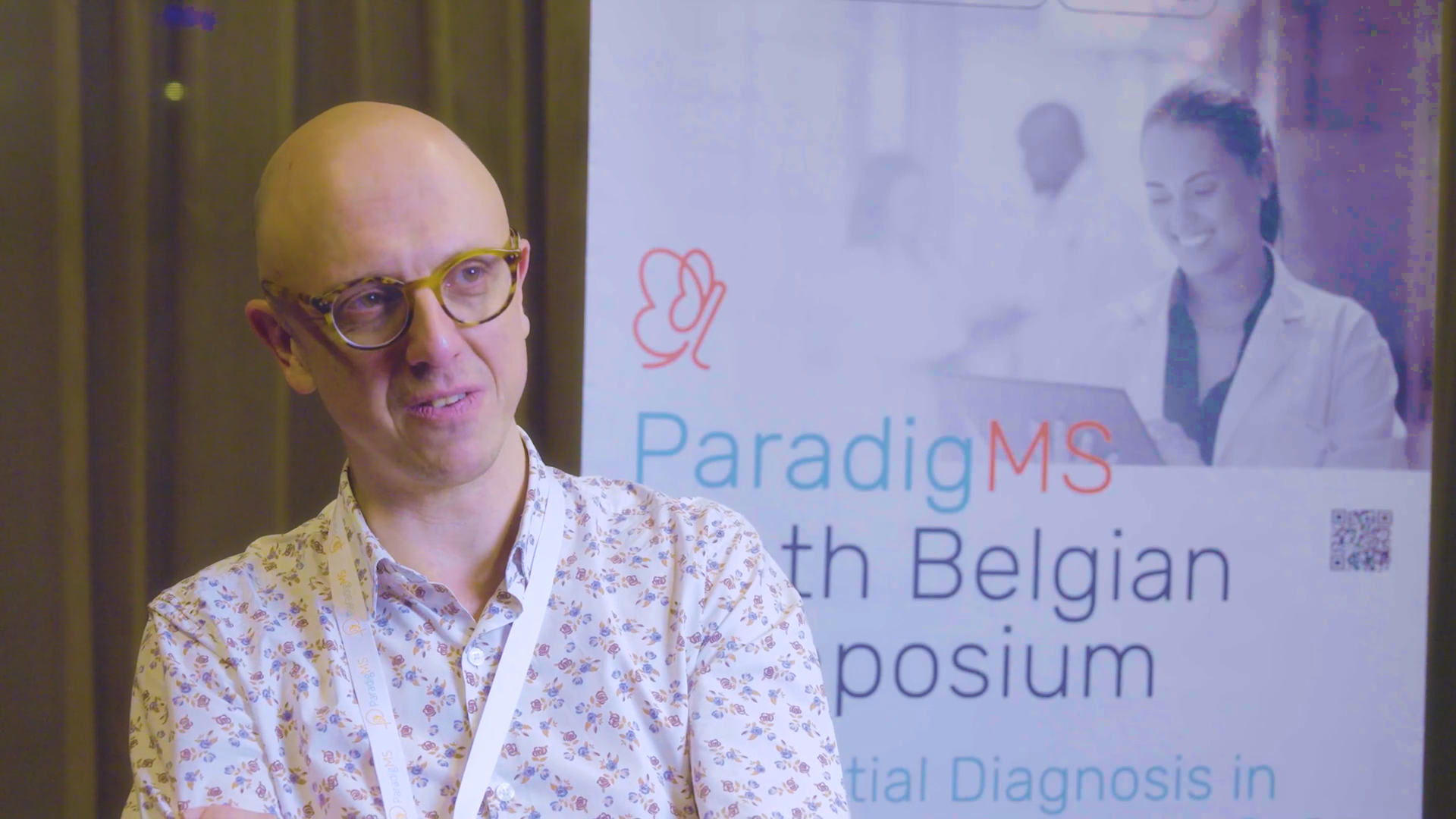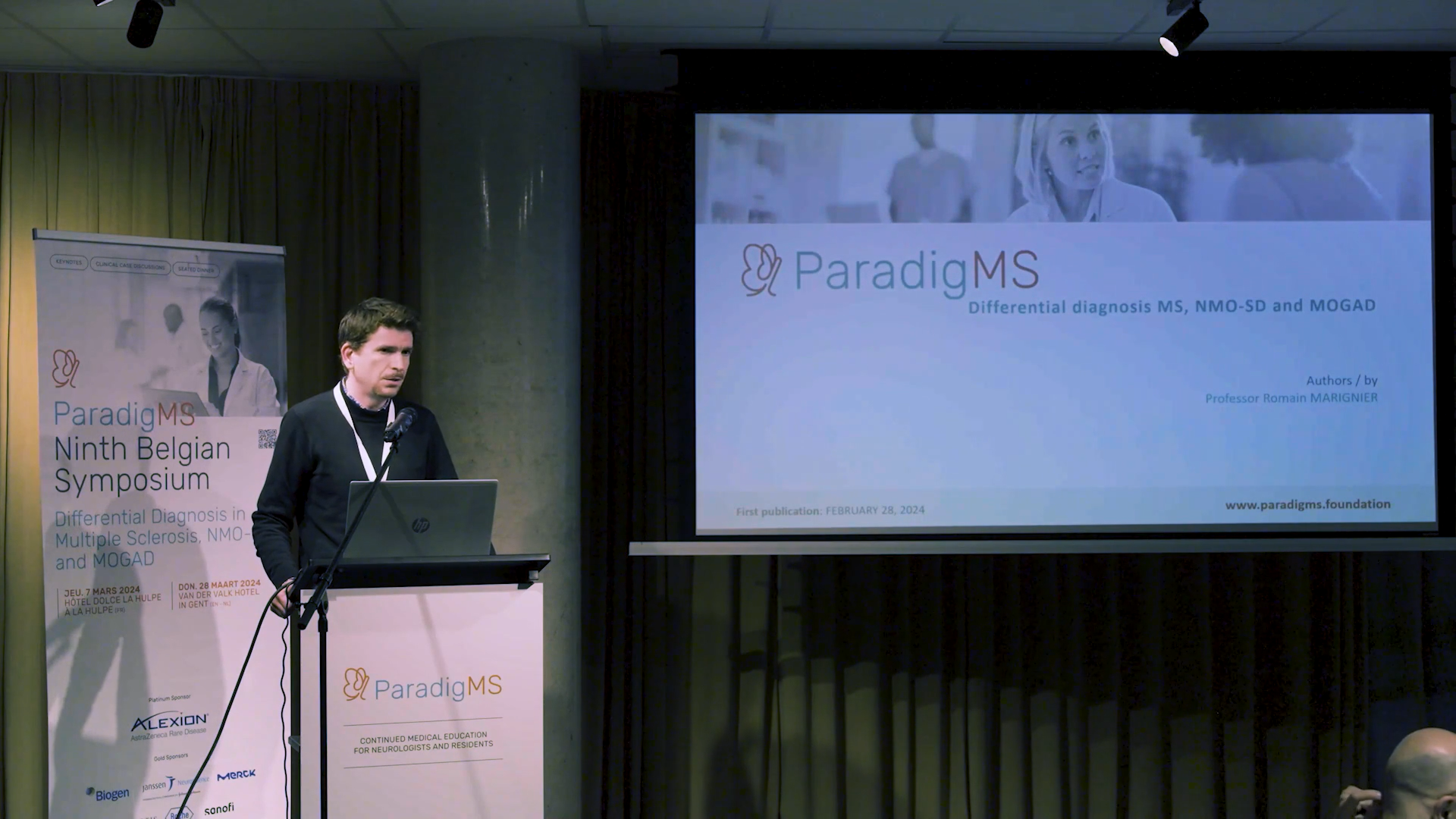Dr. Matthijs Oyaert – Lecture on Antibodies in Focus Advancements in Diagnosing NMO and MOG-related CNS Disorders
ABSTRACT
Over the last decade, knowledge of antibodies linked to inflammatory disorders of the central nervous system, including forms of neuromyelitis optica (NMO) spectrum disorders, acute disseminated encephalomyelitis (ADEM), optic neuritis and transverse myelitis, has significantly reshaped the landscape of the diagnosis and clinical care. Notably, highly specific antibody assays have become an integral part of clinical decision making and include antibodies directed against the aquaporin-4 and anti–myelin oligodendrocyte glycoprotein (MOG).
Various assays have been developed to identify and quantify anti-MOG. First generation assays, including enzyme-linked immunosorbent assays (ELISA) and western blots, are characterized by a poor sensitivity and specificity. To tackle this disadvantage, during the past 10 years, cell-based assays (CBA) in which the recombinant antigen is expressed in its natural confirmation have been developed. Immunofluorescence or flow cytometry is subsequently employed to visualize and quantify antibody binding. Both live and fixed cell CBAs are utilized, offering enhanced sensitivity and specificity. Moreover, techniques such as immunoprecipitation provide complementary means for MOG antibody detection, allowing for confirmation and characterization of MOG antibody subtypes. The selection of an appropriate assay depends on the diagnostic performance, as well as the laboratory’s technical capabilities.
During this presentation, the different assays for the detection of anti-NMO and anti-MOG antibodies will be discussed, including their performance in the different patient populations. Although a lot of progress has already been made in the development, further efforts need to be undertaken to standardize the different assays.
BIOGRAPHY
Matthijs Oyaert
Matthijs Oyaert graduated as a master in drug development (pharmacy) in 2011 and master in clinical biology in 2016 at the KU Leuven and started working as a clinical biologist at the clinical laboratory of the Ghent University hospital. In the laboratory of clinical chemistry and hematology, he is responsible for a broad variety of (automated) routine clinical chemistry and immunochemistry tests and urinary test strip and particle analysis. In addition, he is involved in the laboratory diagnosis of auto-immune and neuroinflammatory diseases. During the first years, he obtained his PhD in 2021 entitled “New developments in the laboratory diagnosis of urinary tract pathology” at the Ghent University. Besides his activity in the Sciensano expert group of TDM, chemistry and immunochemistry and member of the European Federation of Laboratory Medicine (EFLM), he is an active Member of the current Royal Belgian Society of Laboratory Medicine (RBSLM) board. Since 2021, he is involved in the EFLM Task and Finish Group on Urinalysis under the supervision of Prof. Dr. Timo Kouri.
